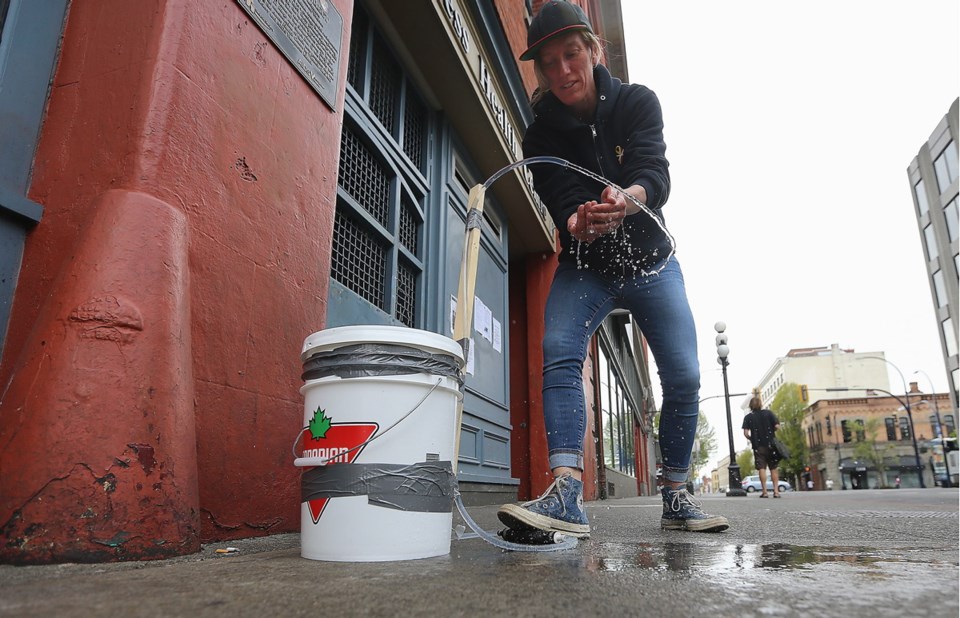A Scout leader has helped find a homemade solution to handwashing for a vulnerable population living outside.
When outreach services such as AVI and Our Place were forced to close their doors, many people lost access to bathroom and hygiene facilities, said Kim Toombs, manager of harm-reduction services for AVI Health and Community Services.
Toombs said there was nowhere for people to wash their hands, which public-health officials continue to stress as an important measure in preventing COVID-19 transmission.
“It was pretty scary to imagine that nobody had anywhere to wash hands while they’re living outside,” Toombs said.
Harm-reduction groups started looking for solutions. AVI gave out handwashing kits with sterile water and soap, but Toombs said that wasn’t an effective approach.
Toombs has a child in Scouts, and she remembered a homemade handwashing station at last summer’s Pacific Jamboree in Sooke, so she got in touch with the man who made them.
Steve Taylor is a research scientist with Natural Resources Canada, based in Victoria. He’s also a Scout leader who was at the week-long Pacific Jamboree and saw the need for handwashing facilities beyond the hand sanitizer and portable toilets.
“The youth were cooking, and it was a lot of people in a small space,” he said. “It was kind of in our interest they had clean hands.”
Taylor looked for a solution online and found nothing commercially available on a small scale. So he made his own hands-free handwashing station using tips he found online and materials he bought locally.
The design is simple: “You stick your hands under the tap, put your foot on the pump and water squirts out,” Taylor said.
The water collects in a basin to prevent wastewater from turning the ground into a mud pit.
He made two stations for the jamboree and has put detailed instructions online on how to make a hands-free handwashing station and where to buy the materials in Greater Victoria.
Taylor donated the two stations to be used during the pandemic, and his online instructions have been used by harm-reduction advocates and volunteers to make at least 20 more for the community.
The homemade sinks are being used in an encampment in Topaz Park, along Pandora Avenue where tents are packed in tightly, in Beacon Hill Park and other locations where people are living outside.
“People aren’t seeing what’s happening on the streets right now because they’re inside isolating,” Toombs said.
The stations are making a difference for people who have nowhere else to wash their hands, but those who live outside and use drugs are facing greater dangers now because the drug supply has become more unpredictable, she said.
“COVID-19 has made the risk bigger and we can’t forget that,” she said. “We need to work harder to make sure that people who use drugs are safer right now.”



